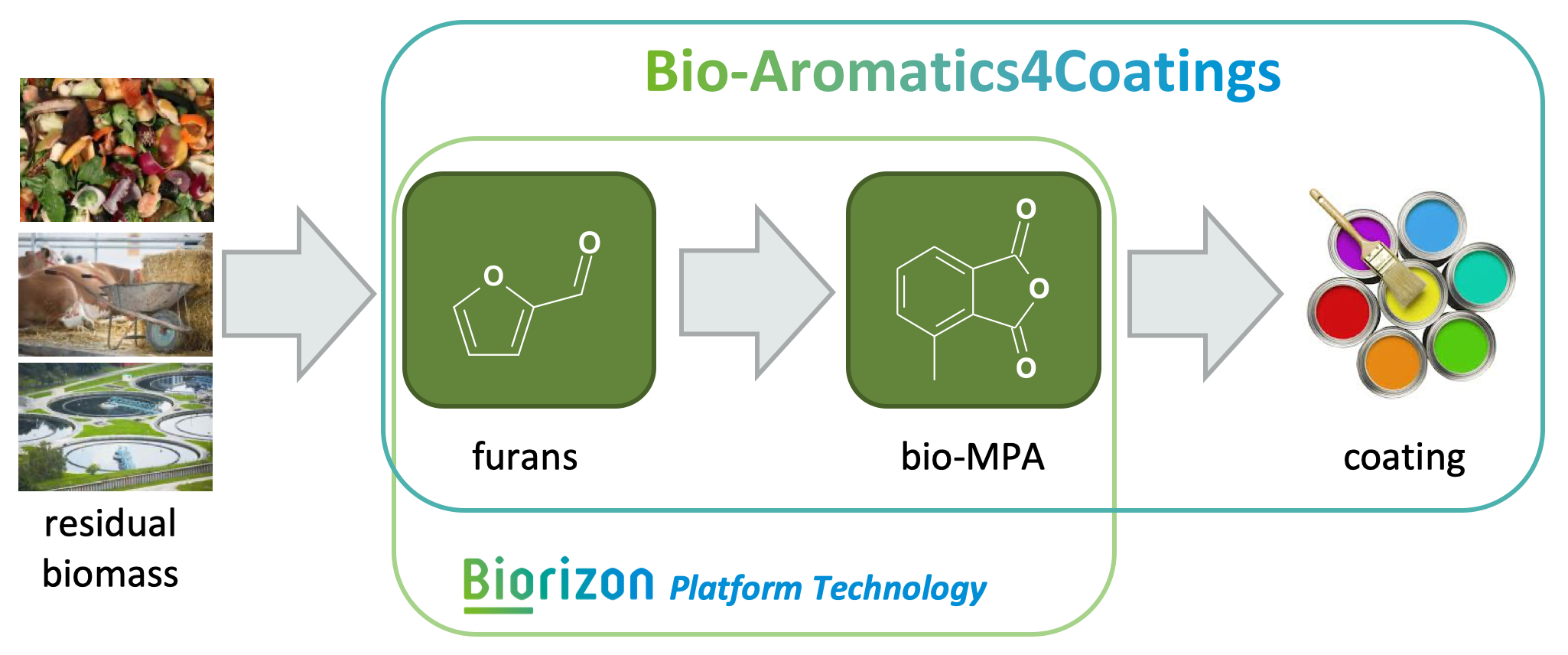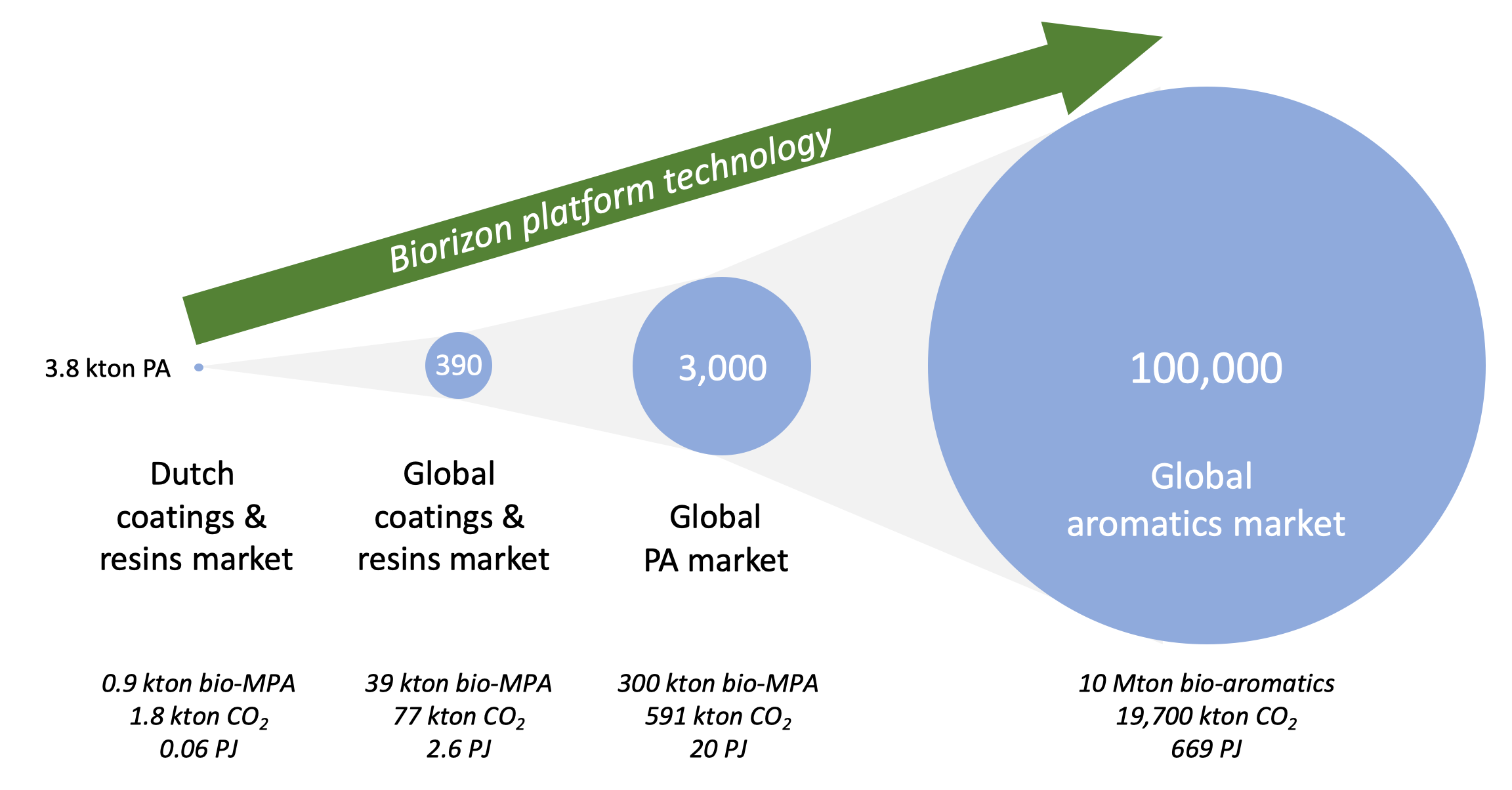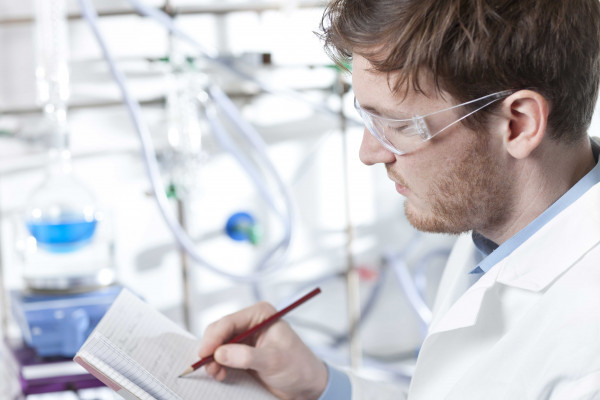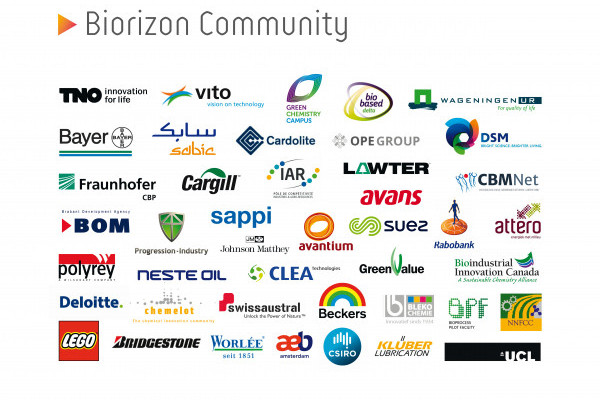News
05-02-2021
Biorizon consortium creates bio-MPA-based alkyd coating that exceeds fossil counterpart in terms of performance, sustainability and resource efficiency
Biorizon’s Bio-Aromatics4Coatings (BA4C) consortium succeeded to develop bio-MPA-based alkyd coatings that exceed fossil PA-based coatings in terms of performance, sustainability and resource efficiency. Bio-MPA is expected to be produced at a price in the same order of magnitude as fossil PA. After the successful demonstration of bio-MPA at kg-scale, the consortium will further scale-up bio-MPA production and its application in coatings to (sub)industrial scale.
Key ingredients in coatings
Aromatic building blocks such as phthalic anhydride (PA) are key ingredients in coatings. They provide properties such as UV resistance and hardness. Today, aromatics are produced almost exclusively from fossil raw materials. Moreover, in some coatings, such as alkyd coatings, aromatic di-acids were the only ingredient for which there was no sustainable alternative available. This alternative now becomes available in the form of bio-aromatics, produced via Biorizon platform technology, opening the way towards fully biobased alkyd coatings.

Bio-Aromatics4Coatings (BA4C) project
In the Bio-Aromatics4Coatings (BA4C) project the consortium partners have successfully developed, assessed and demonstrated the production and application of biobased 3-methylphthalic anhydride (bio-MPA) in alkyd coatings at kg-scale, as renewable alternative for fossil-based phthalic anhydride (PA). Project partners are Biorizon co-initiator TNO, Worlée, Baril Coatings, SoliQz, Van Loon Chemical Innovations and BioDetection Systems. This project was co-financed by the 'Topsector Energiesubsidie' of the Dutch Ministry of Economic Affairs and Climate Policy.

Significant impact
The goal of Bio-Aromatics4Coatings was to further develop the conversion technology for bio-MPA and subsequently demonstrate the applicability of bio-MPA in alkyd coatings as a replacement of petrochemical PA (phthalic anhydride). Successful demonstration promotes implementation of bio-MPA and bio-aromatics in general and thereby significant impact can be realized, as shown in the figure below.

Improved performance, sustainability and resource efficiency
In application these first-of-a-kind bio-MPA-based coatings showed:
- Improved performance as compared to fossil PA-based coatings;
- A 3 kg CO2 emission reduction per kg fossil PA replaced, as revealed by life cycle analysis in the BA4C project;
- A reduction in required solvent for formulation of alkyd coatings is foreseen, due to bio-MPA’s physical properties, bringing additional economic and environmental benefits.
Favorable economic perspective
A techno-economic model, that was established in BA4C, revealed that bio-MPA can be produced at a price in the same order of magnitude as fossil PA. Towards the commercial introduction of bio-MPA, this model additionally provides direction to further optimize the economics and sustainability of the first bio-MPA production plant. Already within BA4C, the basis was laid for efficient purification technology, which has the potential to further increase the sustainability of bio-MPA purification with more than 50% reduction in energy and solvent utilization in the short term.
Favorable toxicological profile
Using dedicated human cell-based CALUX in vitro assays, it has been shown that bio-MPA has a toxicological profile that is comparable to fossil PA in all tested formulations: as monomer, resin and alkyd coating.
Scale-up production
The successful development and demonstration at kg-scale of bio-MPA as techno-economically feasible and safe renewable alternative for fossil PA as ingredient in alkyd coatings, has enthusiastically encouraged the consortium to further scale-up bio-MPA production and application in coatings to (sub)industrial scale in a follow-up project.
Call for participation & more Information
Project coordinator and Biorizon co-initiator TNO is looking for companies that are willing to cooperate in consortia like these, in order to jointly create new biobased coatings and enable the commercialization of new bio-aromatics that are required for this. For more information, please contact Biorizon's Sugar Horizon Manager Monique Wekking at monique.wekking@tno.nl or +31 (0)6 46 84 73 58 and join our community.









